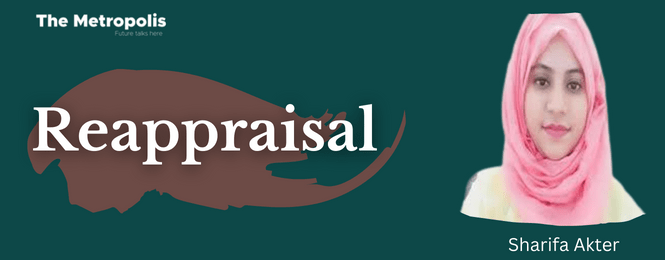Disablement is not a consequence of an individual’s non-normative embodiment or medical ‘condition’ but an outcome of the social practices that exclude, marginalize and discriminate. The changing nature of the concept of disability and media representation of disability encourage us to think again about the phenomena of disability and ability.
Disability cannot be representative of the human condition. But nowadays, disability has become the marker of identity. A person having a disability may have qualities or potentialities that a person without a disability may have. The potentiality of Disabled persons is unnoticed by society. The biased and discriminating social attitudes against people with disabilities perpetuate the problems they are already facing. They are continuously trying to cope with reality and are forced to fit in the hegemonic relationship in normalcy. Their lives become more limited than they it is.
The disability or impairment is not the only hindrance in their way of life but how society receives and cooperates with them creates an enormous psychological impact on their development of self and identity. In the process of exercising power, the real and imagined differences maximize the problems to compromise with the quality and condition of living with dignity. The same access to public space, equipment, or education helps to mold their personality and identity. Society makes it harder and creates external pressure to fulfill the expectations the way society defines and controls the subjection of disability as weak, naïve, dependent, and pitiful.
For those who have never heard of the social model of disability, it can be best explained as the civil rights view of disablement. It separates impairment from disability and focuses on the responsibility that society holds for the disablement of others. For example, if everyone was taught sign language at an early age, a deaf person would no longer be disadvantaged. If towns were built and planned with physical disabilities in mind and there was no social stigma attached to looking or sounding different, then having a physical impairment would no longer be disabling. The office environments can be recreated to remove barriers for disabled employees who are struggling needlessly because the environment and workplace culture has not been designed with them in mind.
Civil rights are not enough to challenge discriminatory values, only empowerment of disabled identity can make them proud to be disabled, a survivor, and have a positive identity. To enhance the lives of the majority, the largest minority group of disabled are needed to be empowered. Self-determination can help to overcome all the hindrances and limitations one has and society creates. This is all about the capability to recognize the true identity of the self not the imposed identity of the ‘other’ as a powerless, useless, invisible inactive individual of society.
Society is the actual greatest monster that is responsible for the underlying problems we, as humans, create for each other. In the play of inclusion and exclusion, society puts us in a race to be human for the sake of being “normal”. The capability of establishing, satisfying and justifiable relationships with people and communicating with their emotional reactions in different situations is normal. They fantasize to modify ‘other’ without adjusting themselves in the process. This uncompromising feature of the abnormal society of normalcy muddles between ‘normal’ and ‘natural’.
Able-bodiedness and the myth of bodily perfection have a connection with the myth promoted the idea that anybody can be perfect, but the ideal, desired, perfect body is not rather an assumption established by a particular group of people for a particular society. The image of a normal body is fictional. We have to recognize that normalcy is artificial and we have to accept that the body is natural. Nature changes vary and are extinct.

The illusion of normalcy makes us blind to understanding our limits. It is the social limitation that fails to accommodate all and fails to accept the differences. Society is the spectacle of our body. The body can be understood as an image of the self, and society assesses our value based on physical appearance. The way Disability does not define a person; in the same way, the differences in the cultural bodies do not define individuality. Disabled bodies are culturally devalued as lacking, as a marker of human frailty. Biological inferiority in terms of the concepts of productivity and use-value is the core reason for being oppressed as the Black, Women, Children, Gay, Lesbian, Third Gender, Aged people, and impaired person in the capitalist superstructure.
Everyone has different types of limitations to struggle with. The way of living defines who we are. But we always divide ourselves up by race, ethnicity, gender, age, disability, religion, and sexuality. People are treated within the social system as black, blind, gay, child, or woman rather than as a person. The identity is gendered, racial, and so on.
To fight against this monstrous society, we need to learn to accept and celebrate the way we are. We all are different and unique.
Sharifa Akter is an Assistant Professor at the Department of English at the University of Asia Pacific, Dhaka



